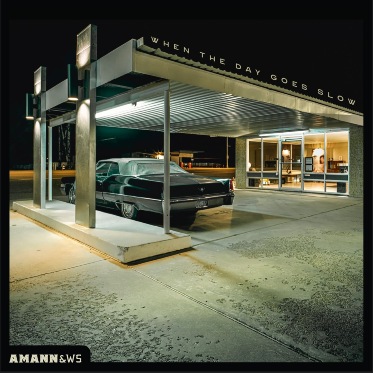The so-called American rock, like any other genre, finds its main identification around certain sound constants that, despite the logical particular intervention to which they are subjected by each performer, act as a backbone. This glossary of easily recognizable elements is accompanied by a whole conceptual imaginary that, in its own way, also serves to define this musical category. Roads, deserts and other scenarios of a similar nature are the environment, sometimes real and other times symbolic, where the desires of an emancipatory spirit that struggles to consolidate itself away from the false refuge offered by that comfortable life to which, other “crazy” people, are cited. Utopians like those enrolled under the name of “situationists” blamed the fact that with the excuse of not letting you die of hunger, you were bored to death. All that idiosyncrasy, both artistic and existential, survives in bands like Amann & The Wayward Sonswhich, from the formulation of its name, accurately captures that nomadic and stateless feeling that they materialize through powerful riffs and accurate melodic statements.
However, it has not been the path taken by the Bilbao band around that territory germinated during the seventies, with the tenacious talent of names like Neil Young, Allman Brothers or Creedence Clearwater Revival, a placid journey along wide highways with the sole purpose of enjoy the view; On the contrary, his personal itinerary has consisted of a continuous reorientation of his compass that, without ever losing the location of the final destination, has offered various paths to get there. A welcome lack of complacency that has left them – up to now – a discography where each of their steps has reflected the group’s specific moment in parallel with an insatiable desire to refine, or simply reformulate, certain guidelines. A long-distance journey in which each of its stages has had its own distinctive luggage.
The publication of their fourth album – if we exclude live performances from the account “Live in Bilbao”– presents the band under a new quartet lineup – with the essential incorporation of keyboards – in which Emi Bares disappears as a stable member so as not to abandon the family, taking charge of production and various instrumentation, making that so that this usually external figure, in this case, has a “blood relationship” with the project. A distribution of roles conducive to promoting, and configuring, the spirit of a job that acts as a sapper when it comes to tracking down those sounds that promoted and played the role of progenitors of all that chaos in the form of southern rock that arrived later and that continues to feed the nerve of a group that, paradoxically, expresses its most rooted personality at the same time that it promotes its most expeditious gestures.
Especially illuminating is the decision to redesign the band’s format when Israel Santamaría’s hands rest on the keys to draw the meandering introductory phrases of “I Have to Change to Stay the Same”, with the clear seed of Ray Charles, with which dictate a suggestive atmosphere of soul-funk that if its deep gospel choirs imprint personality, the ending in a tense and majestic hard rock sublimates its nature. In the same way, the ululation of Hammond is transcendent in what seems like an invocation call to Al Kooper to accompany the boogie of – the explicit one due to its title – “My Freedom”, which neither can, nor gives the sensation of wanting to, escape from the shadow offered by the way The Doors approached blues, including that emphatic final stretch. Cadences and rhythms of undeniable African-American roots that become more velvety in the homonymous song, presented under the cosmopolitan and elegant condition that Robert Cray usually displays, or acquiring the beautiful sensitivity so many times expressed by Ben Harper in “Where Have the Godd People Gone” which, as the American also likes to do, attacks this world run by beings with pretensions of tyrannical emperors thirsty for other people’s blood.
Amann & The Wayward Sons They demonstrate with their new album that they seem to be immersed not only in a particularly suitable moment to perform powerful rock, but that their attitude and staging are especially sharp and willing to waste energy. A driving force so innate that it is capable of shaking even when unplugging the instruments, as in that naked but torn “Filthy Train”, which submerges its rails in a swampy terrain where the traces of names like Chris Stapleton or The White Buffalo still feel wet. , who reinterprets “Lies”, originally included in his album “Free Soul”, which leads us to endless roads with the intention of playing at full volume a radio that speaks the language of Steppenwolf or ZZ Top to cry out against all the falsehoods that they flood the discourse of those in charge of providing order. Two clear examples that the band’s muscles contain Herculean iron but are also endowed with an enviable melodic waist. Skills that manage to shape an excellent repertoire that even whispers in its instinct to demand a freedom that does not avoid conflict, whether personal or collective, as a way of combining our own future.
